In today’s global marketplace, navigating the complexities of international shipping is paramount for businesses looking to import goods from countries like China. A freight forwarder serves as a vital intermediary, streamlining the logistics process and ensuring compliance with local regulations. From managing customs clearance to negotiating freight rates, freight forwarders offer essential expertise and support that can significantly enhance operational efficiency. This guide explores the key roles and benefits of freight forwarders, particularly for shipping from China to destinations like Sudan, while also providing valuable insights on selecting the right logistics partner for your needs.
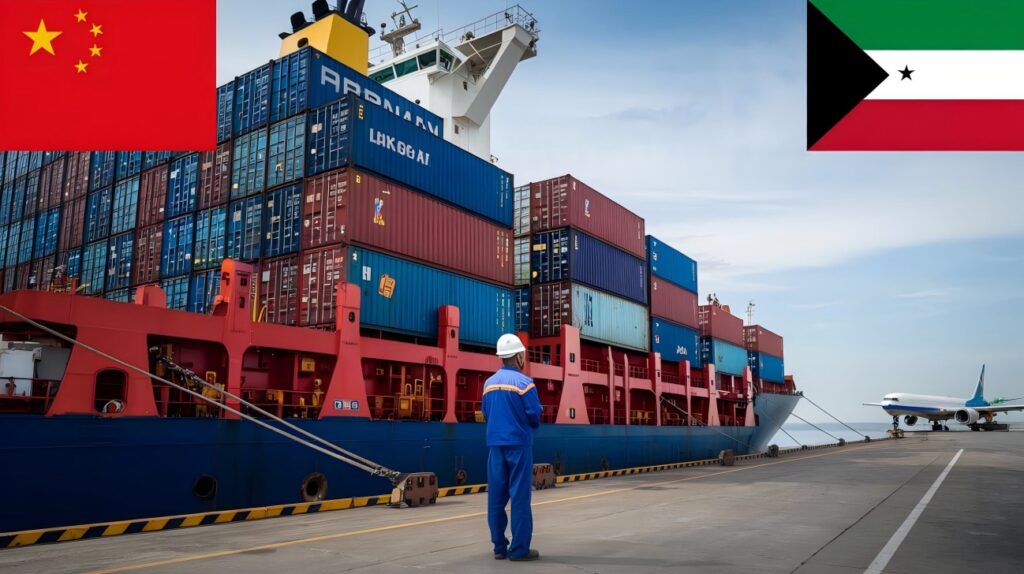
Understanding the Role of a Freight Forwarder
A freight forwarder acts as an intermediary between the shipper (exporter) and the various transportation services involved in moving goods from one location to another. They play a crucial role in the logistics chain by providing a range of services including, but not limited to, transportation management, customs clearance, and warehousing. Their expertise enables them to handle complex shipping requirements and ensure compliance with international regulations.
Freight forwarders streamline the shipping process for businesses by coordinating and organizing the movement of goods. They negotiate freight rates, assist with documentation, and provide valuable advice on the most efficient and cost-effective shipping routes. By leveraging their industry knowledge, freight forwarders help importers and exporters navigate the intricacies of international trade.
Why Use a Freight Forwarder for Shipping from China to Sudan?
When considering shipping from China to Sudan, utilizing the services of a freight forwarder can prove indispensable. The benefits of engaging a professional freight forwarder include:
-
Expertise in Local Regulations: Understanding customs regulations and trade policies between China and Sudan can be daunting. A freight forwarder ensures compliance with local laws, minimizing delays and penalties.
-
Efficient Logistics Management: Freight forwarders possess established relationships with carriers, enabling them to negotiate better shipping rates and secure optimal transport solutions tailored to your needs.
-
Risk Mitigation: Shipping internationally entails various risks, including loss or damage to goods. A freight forwarder can arrange for appropriate insurance services, providing peace of mind and financial protection.
-
Comprehensive Services: From customs clearance to door-to-door services, freight forwarders offer a wide array of services that facilitate smoother transactions, allowing businesses to focus on their core operations.
By opting for a freight forwarder, businesses can enhance their operational efficiency while ensuring a seamless shipping experience.
Factors to Consider When Choosing a Freight Forwarder

Legitimacy and Licensing
Before selecting a freight forwarder, it is essential to verify their legitimacy and licensing. A reputable freight forwarder should hold necessary certifications such as International Air Transport Association (IATA) or Federal Maritime Commission (FMC) licenses. These credentials demonstrate the forwarder’s compliance with industry standards and regulations. Researching the forwarder’s reputation through online reviews and testimonials can provide insights into their reliability and level of service.
Experience and Expertise in China and Sudan Trade
Experience plays a pivotal role in the effectiveness of a freight forwarder. A forwarder with a proven track record in the China-Sudan trade corridor will possess invaluable insights into market dynamics, customs requirements, and logistical challenges. This specialized knowledge enables them to anticipate potential issues and implement proactive measures to avoid delays or complications.
Range of Services Offered
When choosing a freight forwarder, assess the range of services they provide. A comprehensive logistics partner should offer a variety of services, including:
- Air Freight and Ocean Freight options to cater to different shipment needs
- Customs clearance solutions to facilitate efficient entry into Sudan
- Warehouse services for interim storage of goods
- Door-to-door shipping for maximum convenience
A freight forwarder that can manage multiple aspects of your logistics needs will ultimately save you time and resources.
Competitive Pricing and Transparent Fees
Understanding the cost structure is crucial when selecting a freight forwarder. Look for a provider that offers competitive pricing while maintaining transparency in their fee schedule. Hidden charges can escalate costs unexpectedly, so ensure that all potential expenses are communicated upfront. It is advisable to obtain quotes from multiple freight forwarders and compare their pricing, ensuring you receive the best value for your shipping needs.
Reliable Communication and Customer Service
Effective communication is vital in the logistics industry. A good freight forwarder should maintain open lines of communication, providing updates and proactively addressing any concerns that may arise during the shipping process. Assess their customer service responsiveness and willingness to assist with inquiries. A dedicated point of contact can significantly enhance the shipping experience.
Tracking and Monitoring Capabilities
In today’s fast-paced business environment, tracking shipments in real-time is imperative. Choose a freight forwarder that offers robust tracking and monitoring capabilities. This feature allows businesses to stay informed about their shipments’ locations and status, enhancing transparency and facilitating proactive decision-making.
Insurance and Risk Management
International shipping poses various risks, including damage, loss, or theft of goods. A reliable freight forwarder should provide access to comprehensive insurance services to mitigate these risks. Discuss their insurance options and ensure that your cargo is adequately protected throughout the shipping process.
By considering these factors, businesses can select a freight forwarder that aligns with their needs, fostering a successful partnership for shipping from China to Sudan. For exceptional service, Dantful International Logistics stands out as a highly professional, cost-effective, and high-quality one-stop international logistics service provider for global traders. Their expertise in customs clearance, warehouse services, and tailored shipping solutions make them an invaluable partner for navigating the complexities of international trade.
Dantful International Logistics Services:
- Dantful Ocean Freight Services
- Air Freight From China
- Amazon FBA Freight Forwarding
- WAREHOUSE Services
- One-Stop Customs Clearance Solution
- Cargo Insurance Services in China
- DDP Shipping Services By Dantful Logistics
- Out of Gauge Cargo Transportation Shipping Services
Strategies for Finding the Right Freight Forwarder
Referrals and Recommendations from Trusted Sources
One of the most effective methods for finding a reliable freight forwarder is to seek referrals and recommendations from trusted sources. This could include business partners, industry peers, or colleagues who have previous experience with international shipping. Firsthand experiences can provide invaluable insights into the forwarder’s operational efficiency, customer service quality, and overall reliability. Networking within industry associations or forums can also yield recommendations that lead to trustworthy freight forwarders who have successfully facilitated shipments similar to yours.
Online Research and Comparison of Freight Forwarders
Conducting thorough online research is essential in identifying potential freight forwarders. Start by visiting their websites to understand the range of services they offer, their areas of expertise, and their geographical coverage. Look for customer testimonials and case studies that demonstrate their capability to handle shipments from China to Sudan effectively. Utilize comparison tools and platforms that allow you to evaluate multiple freight forwarders side by side, focusing on their services, pricing, and customer ratings. Engaging in online forums or social media groups dedicated to international trade can also help you gather insights and compare options.
Attending Trade Shows and Networking Events
Participating in trade shows and networking events can provide direct access to freight forwarders and logistics professionals. These events often feature exhibitors from various sectors of the logistics industry, including freight forwarding. Attending these events allows you to engage face-to-face with potential partners, ask questions, and assess their capabilities in real-time. Networking with fellow attendees can also uncover additional recommendations and provide a broader perspective on the market, ultimately guiding you toward the right freight forwarder for your shipping needs.
Utilizing Freight Forwarder Directories and Databases
There are numerous online directories and databases specifically dedicated to freight forwarders. These platforms categorize and list forwarders based on their specialties, geographical service areas, and customer reviews. Utilizing these directories allows businesses to filter their options based on specific criteria, making it easier to find a freight forwarder that fits their unique requirements. Popular directories include the World Freight Rates, FreightNet, and Freightos, where you can also find quotes and service comparisons.
Conducting Thorough Background Checks and Due Diligence
Once potential freight forwarders have been identified, conducting thorough background checks is vital. This includes verifying their certifications, licenses, and insurance coverage to ensure they meet industry standards and regulations. Reviewing their financial stability and reputation in the market can provide insights into their reliability. Look for any past incidents of complaints, legal issues, or significant delays in service. Engaging in due diligence ensures that you partner with a freight forwarder who is well-equipped to handle international shipping, particularly to regions like Sudan.
You may be interested in the following related articles:
- Freight Forwarder from China to Libya: Tips for Smooth Shipping
- Step-by-Step Guide to Sea Freight From China to Argentina
- How to Choose the Right Hazmat Freight Forwarder from China to Oman
- The Ultimate Guide to Sea Freight from China to Nigeria
- The Ultimate Guide to Choosing a Hazmat Freight Forwarder from China to Nicaragua
- Step-by-Step Process of Hiring a Freight Forwarder from China to Panama
Evaluating Potential Freight Forwarders
Requesting Quotes and Comparing Costs
Obtaining quotes from multiple freight forwarders is a crucial step in the evaluation process. Ensure that the quotes detail all costs involved, including shipping fees, customs duties, and any additional charges. A comprehensive breakdown enables you to perform a detailed analysis of the total cost of shipping. Comparing costs against the services offered allows you to identify the most cost-effective option without compromising on quality.
Assessing Their Knowledge of Customs Regulations and Procedures
A freight forwarder’s familiarity with customs regulations and procedures is paramount, especially when shipping to specific destinations such as Sudan. Inquire about their understanding of local customs requirements, import/export documentation, and any specific challenges associated with the Sudanese market. A knowledgeable freight forwarder will be able to navigate the complexities of customs clearance efficiently and minimize the risk of delays.
Evaluating Their Network of Partners and Agents in Sudan
The strength of a freight forwarder’s network can significantly affect the efficiency of your shipping process. Evaluate their relationships with local agents, customs brokers, and transportation providers in Sudan. A well-established network can facilitate smoother customs clearance and logistics operations, ensuring timely delivery of goods. A freight forwarder with strong local connections can also provide invaluable insights into the market and help you navigate any region-specific challenges.
Reviewing Their Track Record of Successful Shipments
A forwarder’s track record of successful shipments serves as a testament to their capabilities and reliability. Request references or case studies that showcase their experience in shipping goods to Sudan or similar markets. Look for indicators of consistency in handling shipments, such as on-time delivery rates and customer satisfaction levels. A strong performance history demonstrates the forwarder’s capability to manage logistics effectively and handle any potential challenges.
Considering Their Sustainability and Environmental Practices
As global awareness of environmental issues increases, evaluating a freight forwarder’s sustainability practices is becoming increasingly important. Inquire about their policies regarding carbon emissions, waste management, and eco-friendly logistics options. A freight forwarder that prioritizes sustainability reflects a commitment to ethical business practices and can provide added value to your brand’s reputation. Aligning with partners who share your values regarding environmental responsibility can enhance your company’s overall corporate social responsibility efforts.
Partnering with a reputable freight forwarder like Dantful International Logistics ensures that your shipping needs are met with professionalism and expertise. Their comprehensive services, combined with a deep understanding of the logistics landscape, make them an excellent choice for businesses looking to import goods from China to Sudan. Leveraging Dantful’s capabilities helps streamline your supply chain and enhances your overall operational efficiency.
Negotiating and Finalizing the Agreement
Clearly Defining the Scope of Services and Responsibilities
When entering into an agreement with a freight forwarder, it is imperative to clearly define the scope of services and responsibilities. This includes specifying which services will be provided, such as customs clearance, door-to-door shipping, warehousing, and insurance services. Additionally, outline the responsibilities of both parties, including the shipper’s obligations (e.g., providing accurate documentation) and the forwarder’s duties (e.g., timely communication and delivery). A well-defined scope helps prevent misunderstandings and sets clear expectations for performance.
Agreeing on Payment Terms and Methods
Establishing payment terms and methods is a critical component of the negotiation process. Discuss payment structures, including whether payments will be made upfront, upon delivery, or through milestone payments based on shipment progress. Agree on the payment methods that are acceptable to both parties, whether via bank transfer, credit card, or other means. Clarity regarding payment terms can help avoid disputes and ensure smooth financial transactions throughout the shipping process.
Discussing Contingency Plans and Emergency Procedures
Every shipping scenario carries inherent risks, and having contingency plans in place is essential. Engage in discussions regarding potential risks and develop emergency procedures to address unexpected situations such as delays, cargo damage, or loss. Establish clear protocols for communication during emergencies and designate key contacts for both parties. This proactive approach ensures that both the shipper and forwarder are prepared to respond effectively to challenges, minimizing disruptions to the supply chain.
Signing a Comprehensive Contract or Service Agreement
A comprehensive contract or service agreement formalizes the working relationship between the shipper and the freight forwarder. This document should encapsulate all agreed-upon terms, including services, responsibilities, payment terms, contingency plans, and dispute resolution mechanisms. Both parties should review the contract carefully before signing to ensure that all aspects of the agreement are accurately represented. A well-structured contract protects the interests of both parties and serves as a reference point throughout the shipping process.
Maintaining a Strong Relationship with Your Freight Forwarder
Providing Accurate and Timely Information About Your Shipments
Effective communication is the foundation of a strong relationship with your freight forwarder. Provide accurate and timely information regarding your shipments, including details such as shipment schedules, nature of the goods, and any required documentation. This transparency allows the freight forwarder to plan logistics efficiently and respond proactively to any issues that may arise. Open lines of communication foster trust and ensure that both parties are aligned throughout the shipping process.
Communicating Regularly About Any Changes or Issues
Regular communication is vital for addressing changes or issues that may affect the shipping process. If there are any alterations to shipment schedules, changes in product specifications, or unexpected challenges, promptly communicate these to your freight forwarder. This proactive approach allows for timely adjustments to be made, ensuring that the logistics operation remains smooth and efficient. Consistent communication helps build a partnership characterized by collaboration and mutual understanding.
Providing Feedback and Constructive Criticism
Creating a feedback loop is a crucial aspect of maintaining a productive relationship with your freight forwarder. Provide feedback on their performance, whether positive or constructive, to help them understand how they can better serve your needs. Constructive criticism can lead to improvements in service delivery, enhancing the overall effectiveness of your logistics operations. Engaging in open discussions about performance fosters a culture of continuous improvement and demonstrates your commitment to the partnership.
Considering Long-term Partnerships for Consistent Service
Fostering a long-term partnership with your freight forwarder can yield significant benefits. Establishing a consistent relationship allows the forwarder to develop a deeper understanding of your business operations, preferences, and logistical requirements. This familiarity can lead to tailored solutions that enhance efficiency and reduce costs over time. Additionally, long-term partnerships can facilitate better negotiation terms, as both parties work together towards common goals. Building a lasting relationship with a reputable freight forwarder like Dantful International Logistics ensures a reliable and efficient shipping experience, leveraging their expertise for your logistical success.
FAQs
-
What is the role of a freight forwarder?
A freight forwarder acts as an intermediary between shippers and transportation services, managing logistics, customs clearance, and warehousing to ensure efficient shipping processes. -
Why should I use a freight forwarder for shipping from China to Sudan?
Utilizing a freight forwarder can help navigate local regulations, manage logistics efficiently, mitigate risks through insurance, and provide comprehensive services tailored to your shipping needs. -
What factors should I consider when choosing a freight forwarder?
Important factors include the forwarder’s legitimacy and licensing, experience in the China-Sudan trade, range of services offered, pricing transparency, communication quality, tracking capabilities, and insurance options. -
How can I find the right freight forwarder?
Referrals from trusted sources, online research, attending trade shows, utilizing freight forwarder directories, and conducting background checks are effective strategies for finding a reliable freight forwarder. -
What should I include in the agreement with a freight forwarder?
The agreement should clearly define the scope of services, payment terms, responsibilities, contingency plans, and include a comprehensive contract to formalize the relationship. -
How can I maintain a strong relationship with my freight forwarder?
Providing accurate shipping information, regular communication about changes, feedback and constructive criticism, and considering a long-term partnership can strengthen the relationship with your freight forwarder. -
What types of services do freight forwarders provide?
Freight forwarders typically offer air and ocean freight options, customs clearance, warehousing services, door-to-door shipping, and insurance services to cover various logistics needs. -
How do I ensure my cargo is protected during shipment?
Discuss insurance options with your freight forwarder to ensure that your cargo is adequately covered against risks such as damage, loss, or theft during transit.

Young Chiu is a seasoned logistics expert with over 15 years of experience in international freight forwarding and supply chain management. As CEO of Dantful International Logistics, Young is dedicated to providing valuable insights and practical advice to businesses navigating the complexities of global shipping.
The other language versions of this article
- العثور على أفضل شركة شحن من الصين إلى السودان – دانتفول
- Vind de beste expediteur van China naar Soedan
- Trouver le meilleur transitaire de Chine vers le Soudan
- Den besten Spediteur von China in den Sudan finden
- Trovare il miglior spedizioniere dalla Cina al Sudan
- Cómo encontrar el mejor transportista de China a Sudán
- Encontrando o melhor despachante de carga da China para o Sudão
- Поиск лучшего экспедитора из Китая в Судан
- Çin’den Sudan’a En İyi Nakliye Komisyoncusunu Bulmak











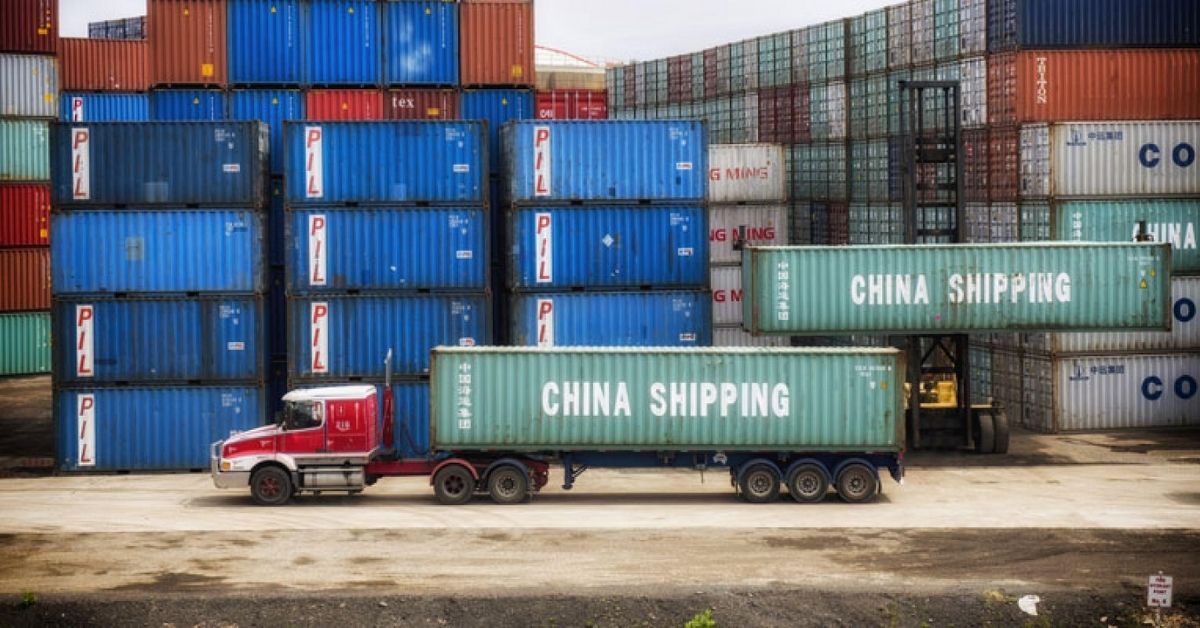
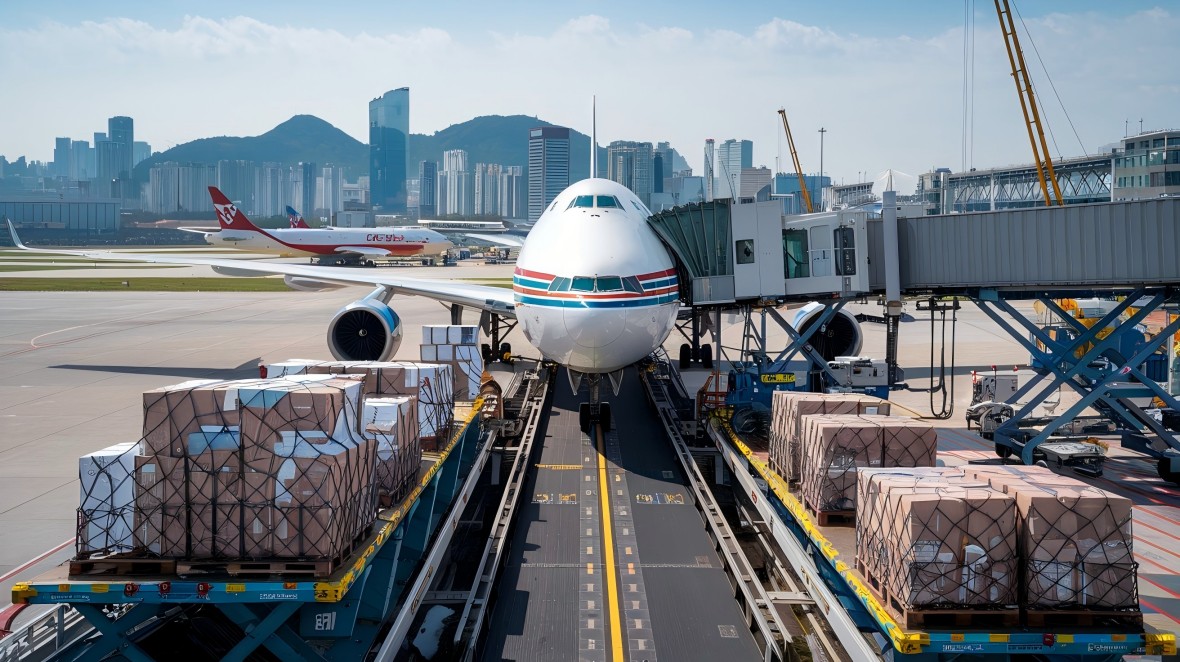
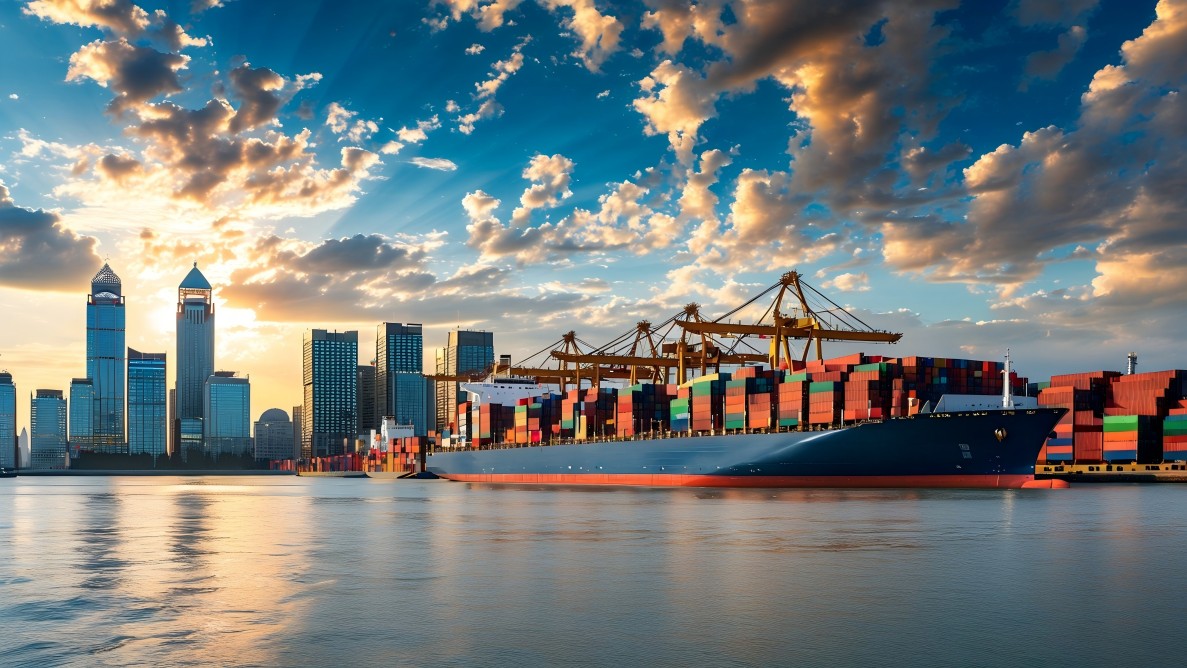
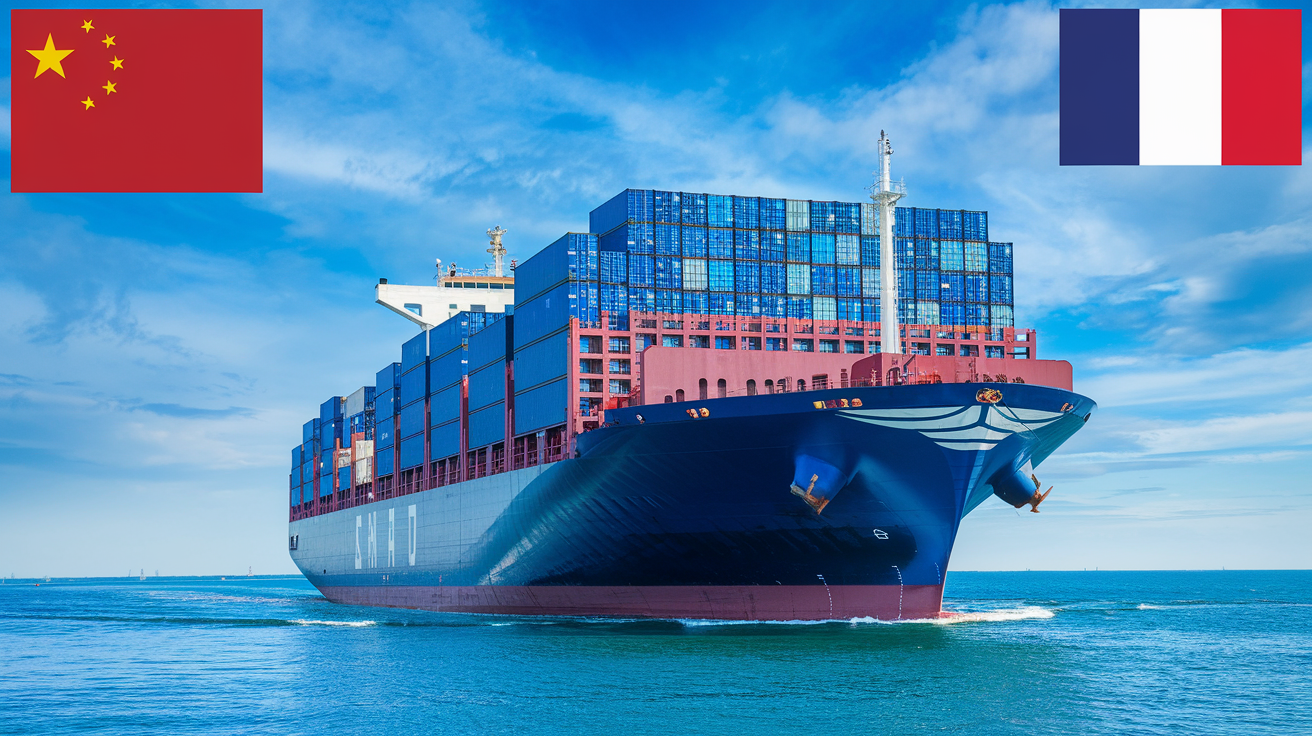






 Afrikaans
Afrikaans Shqip
Shqip አማርኛ
አማርኛ العربية
العربية Հայերեն
Հայերեն Azərbaycan dili
Azərbaycan dili Euskara
Euskara Беларуская мова
Беларуская мова বাংলা
বাংলা Bosanski
Bosanski Български
Български Català
Català Cebuano
Cebuano Chichewa
Chichewa 简体中文
简体中文 繁體中文
繁體中文 Corsu
Corsu Hrvatski
Hrvatski Čeština
Čeština Dansk
Dansk Nederlands
Nederlands English
English Esperanto
Esperanto Eesti
Eesti Filipino
Filipino Suomi
Suomi Français
Français Galego
Galego ქართული
ქართული Deutsch
Deutsch Ελληνικά
Ελληνικά Kreyol ayisyen
Kreyol ayisyen Harshen Hausa
Harshen Hausa Ōlelo Hawaiʻi
Ōlelo Hawaiʻi עִבְרִית
עִבְרִית हिन्दी
हिन्दी Hmong
Hmong Magyar
Magyar Íslenska
Íslenska Igbo
Igbo Bahasa Indonesia
Bahasa Indonesia Gaeilge
Gaeilge Italiano
Italiano 日本語
日本語 Basa Jawa
Basa Jawa ಕನ್ನಡ
ಕನ್ನಡ Қазақ тілі
Қазақ тілі ភាសាខ្មែរ
ភាសាខ្មែរ 한국어
한국어 كوردی
كوردی Кыргызча
Кыргызча ພາສາລາວ
ພາສາລາວ Latin
Latin Latviešu valoda
Latviešu valoda Lietuvių kalba
Lietuvių kalba Lëtzebuergesch
Lëtzebuergesch Македонски јазик
Македонски јазик Malagasy
Malagasy Bahasa Melayu
Bahasa Melayu മലയാളം
മലയാളം Maltese
Maltese Te Reo Māori
Te Reo Māori मराठी
मराठी Монгол
Монгол ဗမာစာ
ဗမာစာ नेपाली
नेपाली Norsk bokmål
Norsk bokmål پښتو
پښتو فارسی
فارسی Polski
Polski Português
Português ਪੰਜਾਬੀ
ਪੰਜਾਬੀ Română
Română Русский
Русский Samoan
Samoan Gàidhlig
Gàidhlig Српски језик
Српски језик Sesotho
Sesotho Shona
Shona سنڌي
سنڌي සිංහල
සිංහල Slovenčina
Slovenčina Slovenščina
Slovenščina Afsoomaali
Afsoomaali Español
Español Basa Sunda
Basa Sunda Kiswahili
Kiswahili Svenska
Svenska Тоҷикӣ
Тоҷикӣ தமிழ்
தமிழ் తెలుగు
తెలుగు ไทย
ไทย Türkçe
Türkçe Українська
Українська اردو
اردو O‘zbekcha
O‘zbekcha Tiếng Việt
Tiếng Việt Cymraeg
Cymraeg יידיש
יידיש Yorùbá
Yorùbá Zulu
Zulu